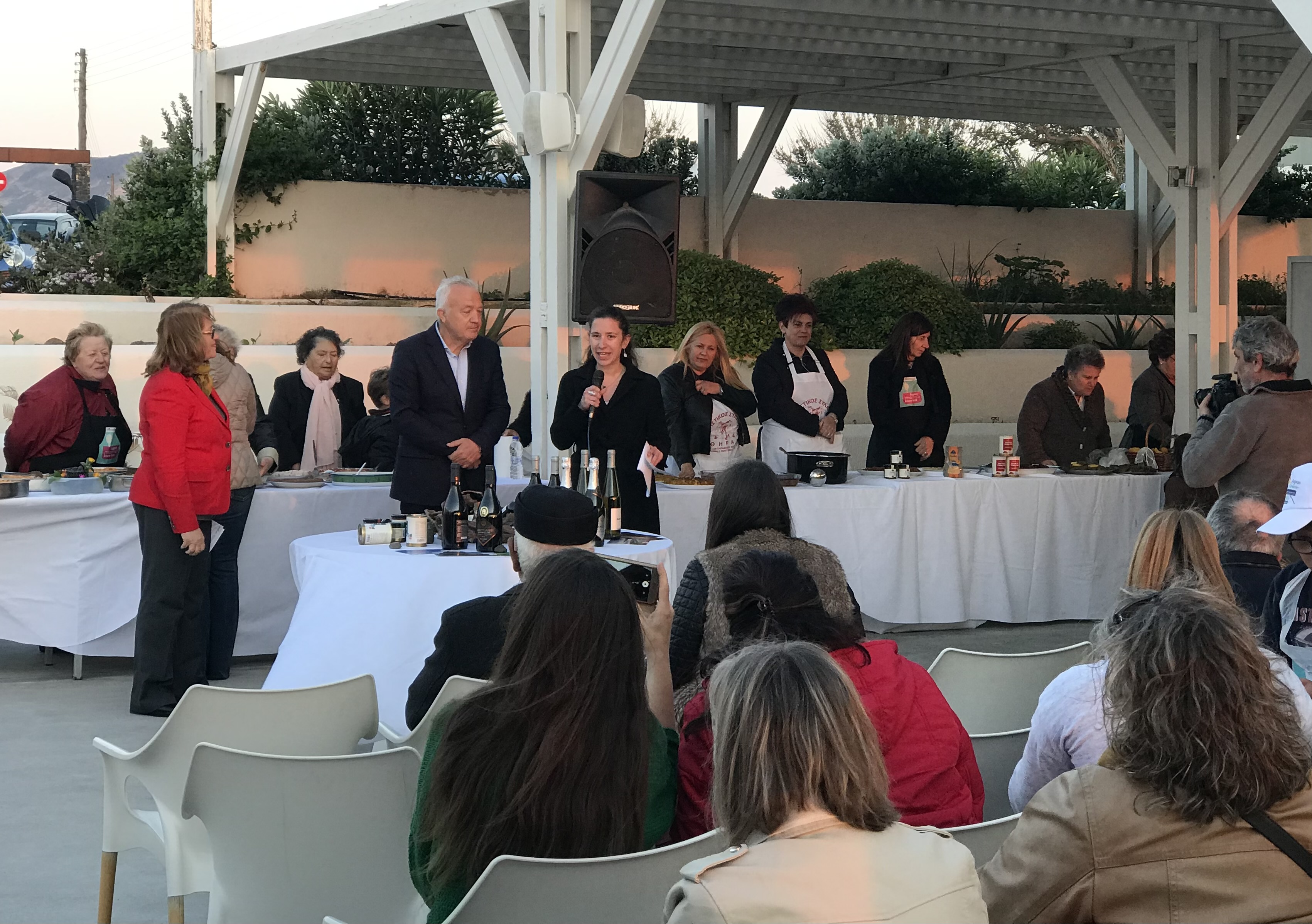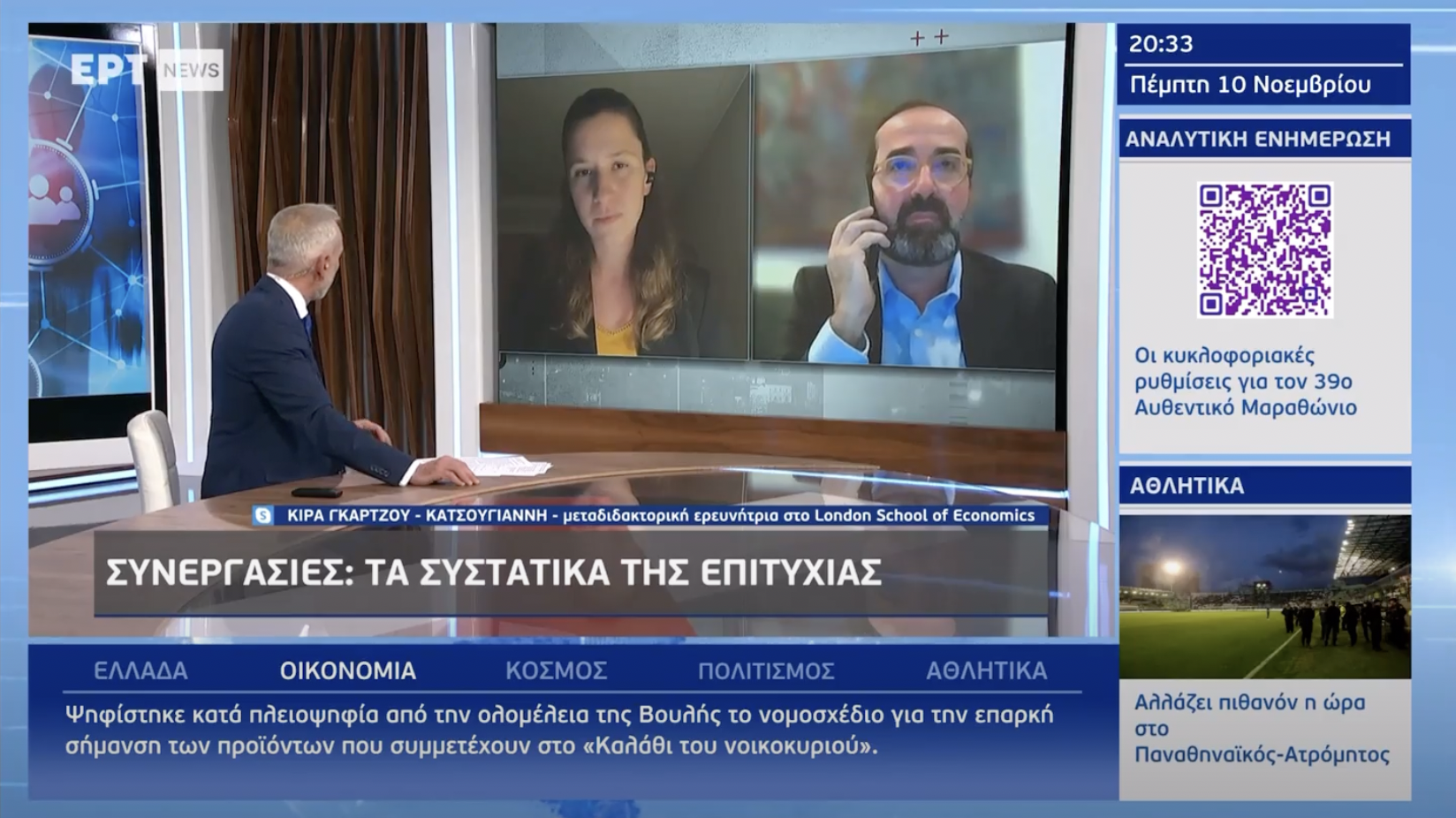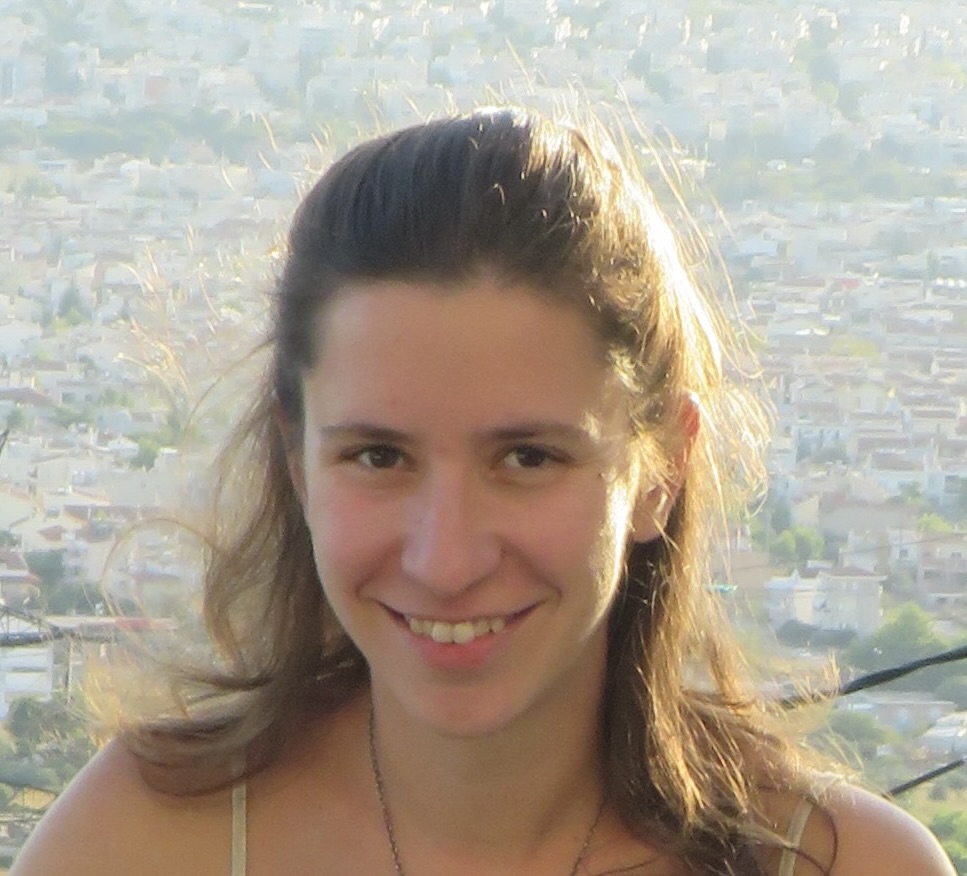Cooperation against the odds
My work on the political economy of cooperation explains how diverse stakeholders can start working together to achieve mutually beneficial goals in low-trust, institutionally weak environments. I have addressed this question in the context of my PhD thesis, my ESRC postdoctoral fellowship at the LSE’s European Institute, and my Hellenic Bank Association postdoctoral fellowship at the LSE’s Hellenic Observatory.
About
Is it possible to get economic actors to work together in order to achieve mutually beneficial outcomes in unfavourable settings?
Established theories of cooperation suggest that overcoming the obstacles to cooperation requires either a robust framework of formal institutions or a long-established culture of trust. Many places in the world are endowed with neither of those characteristics. Yet, in the presence of fragmented ownership structures, sustained cooperation among economic actors is important for processes of economic development, which themselves have major implications for domestic political dynamics.
In my PhD thesis, I approached the puzzle of the emergence of cooperation in unfavourable settings by drawing on qualitative empirical evidence collected through fieldwork in four areas of Greece where specific types of cooperation were observed, compared to four otherwise similar (matching) cases where such patterns of cooperation failed to occur. Some results were also tested using quantitative methods and fieldwork evidence from Southern Italy.
My thesis argues that for cooperation to emerge against the odds, the crucial variable is leadership. A small group of boundary-spanning leading actors can trigger a process of creating local-level cooperative institutions by performing three specific types of difficult and costly institutional work. Successful leaders tend to be translocally embedded, highly skilled, well connected actors, who have a subjective conception of their self-interest as encapsulating the interests of others. The institutional work of a small group of local-level leading actors can only catalyse broad-based, sustained cooperation if it is nested within a framework of facilitative overarching institutions. Crucially, supranational actors such as the EU can also provide such facilitative macro-level institutions, thereby to an extent compensating for deficiencies in national institutional frameworks.
By combining analysis of local-level agency and processes, on the one hand, and macro-level institutional frameworks, on the other, my thesis makes a contribution to our understanding of institutional change, the emergence of cooperation, and the political economy of local development in fragmented economies.
Journal articles
Kira Gartzou-Katsouyanni (2024), ‘How can public policies facilitate local cooperation? insights from the EU’s wine policy’, New Political Economy (online)
Kira Gartzou-Katsouyanni (2024), ‘Obstacles to local cooperation in fragmented, left-behind economies: An integrated framework’, Cambridge Journal of Regions, Economy and Society 17(2)
PhD thesis
- My PhD thesis is entitled “Cooperation against the odds: a study on the political economy of local development in a country with small firms and small farms”. It can be accessed here.
Scholarships, grants and awards
Hellenic Bank Association Postdoctoral Fellowship, January-December 2023
ESRC Postdoctoral Fellowship, January-December 2022
London School of Economics, Full PhD Scholarship, 2016-2020
Early Career Plenary Speaker, annual conference of the Regional Studies Association (RSA), 11-14 June 2024
Early Career Workshop Award, Society for the Advancement of Socio-Economics (SASE), 2019 (awarded on a competitive basis to 14 early career researchers, enabling them to participate at a career development workshop and covering the registration, travel and accommodation costs of attending SASE’s annual conference in New York)
UACES Travel Scholarship, 2018 (competitive grant awarded by the Academic Association for Contemporary European Studies for my PhD fieldwork)
Public engagement
Kira Gartzou-Katsouyanni (15/11/2022), invited talk at the “Third Joint EU Cohesion Policy Conference” organised by the European Commission (DG REGIO), the Croatian Ministry of Regional Development and EU Funds, and the Regional Studies Association (Europe) in Zagreb.
Kira Gartzou-Katsouyanni (10/11/2022), participation in the Greek public broadcaster (ERT)’s 8pm news programme “Prime” to discuss my ELIAMEP policy paper
Kira Gartzou-Katsouyanni (3/11/2022) “Cooperation against the odds: Getting small firms to work together in unfavourable circumstances”, Policy Paper #115, Hellenic Foundation for European & Foreign Policy (ELIAMEP). Available in both English and Greek.
Stathis Kalyvas and Kira Gartzou-Katsouyanni (31/5/2020), “The tourism that we wish for” (in Greek), opinion article in the Greek daily Kathimerini
Kira Gartzou-Katsouyanni and Philip Schnattinger (29/11/2019), “The misuse of CAP funds in Central and Eastern Europe is a symptom of corruption, not a cause.”, LSE EUROPP blog.
Media mentions
Article in the Greek daily Kathimerini by economist and venture capital professional Aristos Doxiadis about the overall argument of my thesis, with an emphasis on the transformative role of institutional entrepreneurs at the local level
Local newspaper article about a talk I gave at a public event hosted by Santorini’s wine cooperative. The talk was on “the contribution of cooperation and networking to the development of gastronomical tourism in Greece”. The event took place in the framework of the EU-funded award programme “South Aegean: European Region of Gastronomy 2019”.
 Talking about my dissertation findings at a public event in Santorini on 18/4/19
Talking about my dissertation findings at a public event in Santorini on 18/4/19
 Talking about my ELIAMEP policy paper at the Greek public broadcaster’s 8pm news programme on 10/11/22
Talking about my ELIAMEP policy paper at the Greek public broadcaster’s 8pm news programme on 10/11/22

